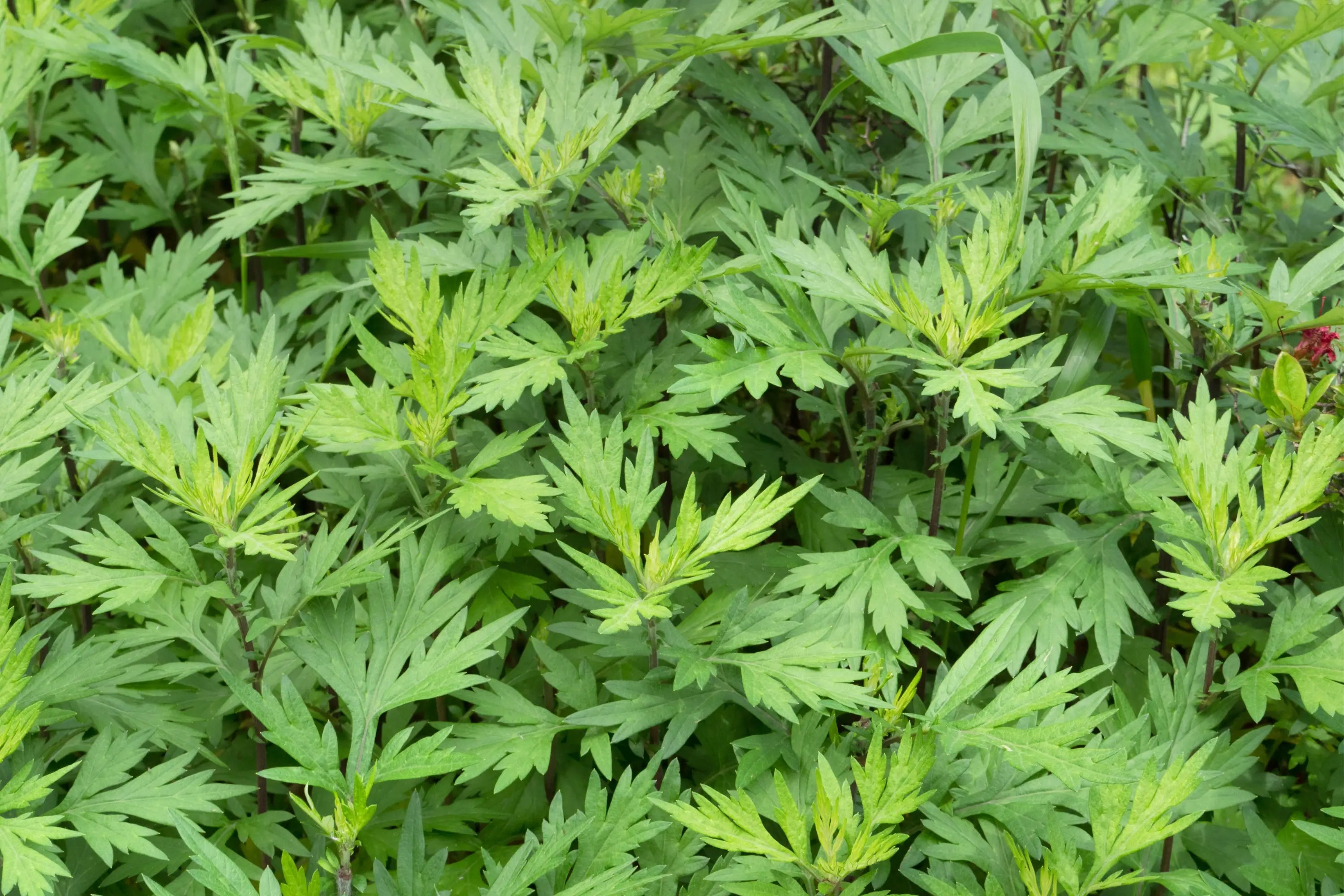Nature has bestowed upon us an innumerable amount of powerful medicinal herbs, many of which were beloved by our ancestors as well. One such gem is the herb mugwort, cherished for centuries in traditional medicine and folklore for its amazing benefits. In this article, we’ll delve into the world of mugwort, exploring its origins, how it's used, and the potential health perks it offers.
What is Mugwort herb?
Mugwort, also known by its Latin name Artemisia vulgaris, is a unique perennial plant found in Europe, Asia, and Northern Africa. It belongs to the same family as well-known herbs like sagebrush and wormwood. The name "mugwort" comes from long ago, when the herb was used to flavor alcoholic drinks, like mugwort ale.
Mugwort is a historically significant herb, as it was revered by ancient civilizations. It played a prominent role in traditional medicine, folklore, and even in religious and mystical practices. Across different cultures, mugwort was believed to possess protective and purifying qualities, warding off evil spirits and negative energies.
Even more, mugwort was thought to have the ability to enhance dreams and provide lucid visions, making it a popular choice for rituals and divination ceremonies. The herb's diverse use in both practical and spiritual contexts has contributed to its enduring popularity throughout the ages.
How is Mugwort herb prepared and consumed?
Mugwort is a hardy plant—so hardy, in fact, that it is considered an invasive weed in many parts of the word—and can thrive in nutrient-poor soil with very little water, making it easy to grow and cultivate. Though it may be a pest in some gardens, this fortunately means that farming mugwort has little environmental impact, provided it doesn’t spread and crowd out noninvasive plants!
The mugwort herb we consume comes from the leaves and flowers of the plant, which are carefully harvested at the end of its growth stage. Though hardy, mugwort can be delicate, so the majority of mugwort on the market has been hand-picked to prevent damaging the medicinal leaves and flowers.
Mugwort is extremely versatile, which is evident in the variety of ways it can be utilized.
Freshly dried mugwort herb is often used in teas—it has an earthy, sometimes bitter taste—and is actually smoked in certain cultural practices or ceremonies. However, the herb’s most popular modern application is as an essential oil or tincture. The herb is steamed and distilled, producing a rich, aromatic oil that is used on its own or within a tincture for consumption.
What are the benefits of mugwort?
The traditional uses of mugwort have sparked scientific interest, leading to research into its numerous potential health benefits. Though not all of these studies have concrete findings, some studies suggest that pharmaceutical industry’s use of mugwort makes the herb’s positive effects clear.
These are some of the benefits you can reap from using mugwort:
Digestive Support
If you’ve got an upset tummy, you may consider reaching for a mugwort tincture. Mugwort is thought to stimulate the digestive system, aiding in appetite regulation and alleviating mild digestive discomfort. However, some report that it stimulates the digestive system a bit too much, so be sure to watch your dosage.
Improved Sleep
Many of those who appreciate natural alternatives to pharmaceuticals enjoy mugwort when they are struggling to get restful sleep or are feeling overly stressed. This is because the herb is thought to improve sleep quality and reduce stress levels, giving you a full night’s sleep and a calm mind.
Alleviates Menstrual Symptoms
As with many popular holistic herbs on the market today, mugwort has been traditionally used in women’s health, with some believing that it is especially effective when dealing with uncomfortable menstrual symptoms, like cramps.
Anti-inflammatory and Antioxidant Properties
Rumor has it that Roman soldiers put mugwort in their shoes to ease the foot pain they experienced when marching. Turns out, there is science behind this!
Mugwort contains a number of compounds, such as flavonoids, which possess powerful anti-inflammatory and antioxidant properties. As inflammation often leads to minor pains, these properties could contribute to overall health and well-being.
Mugwort Herb: An Ancient Remedy for Modern People
Despite sounding like an ingredient in a witch’s brew, mugwort has a rich historical legacy and many benefits that continue to help people to this day. With so many different uses, it is no wonder that the herb mugwort has held the interest of researchers and herbal enthusiasts for so long.
Mugwort is generally safe for most people, but it should be noted that pregnant women should not consume mugwort, as it can cause serious complications.
If you want to experience the same medicinal properties that our ancestors did, check out mugwort herb supplements and tinctures in our shop.





Share:
Wormwood Health Benefits: All You Need to Know About Artemisia Absinthium
The Power of Nature: Benefits of Alfalfa